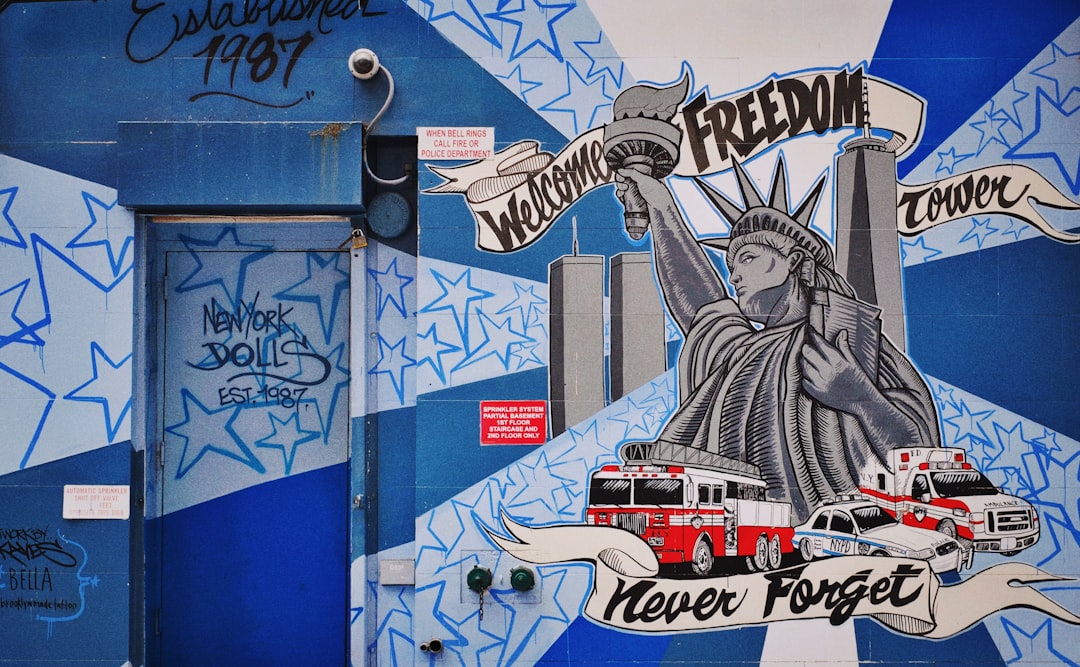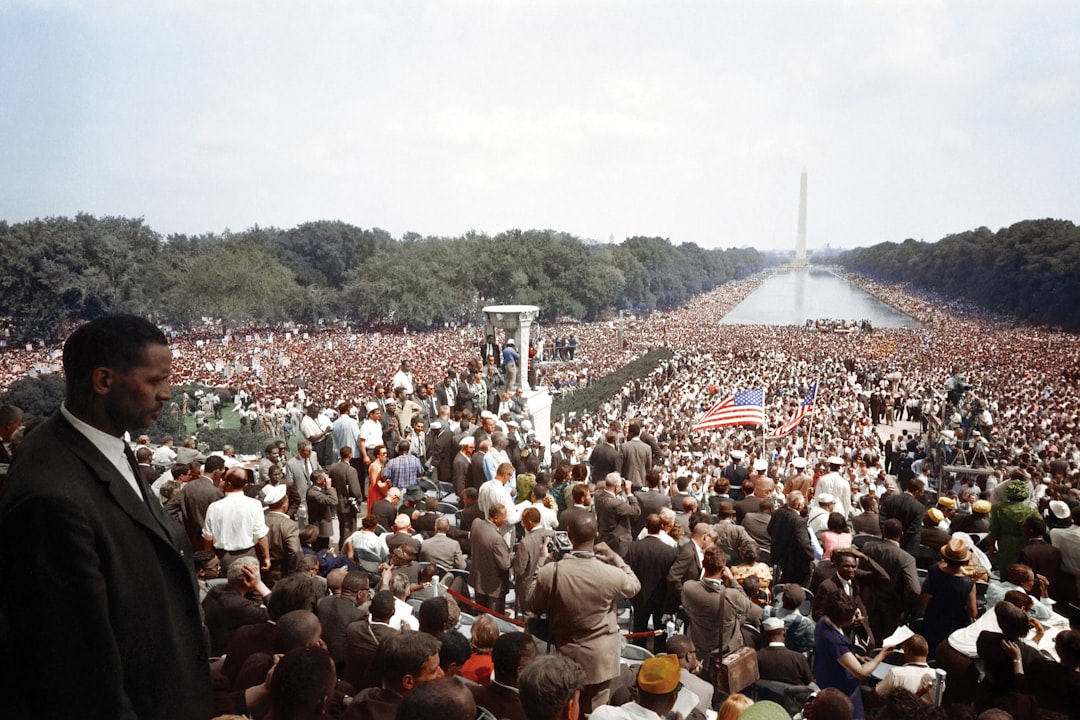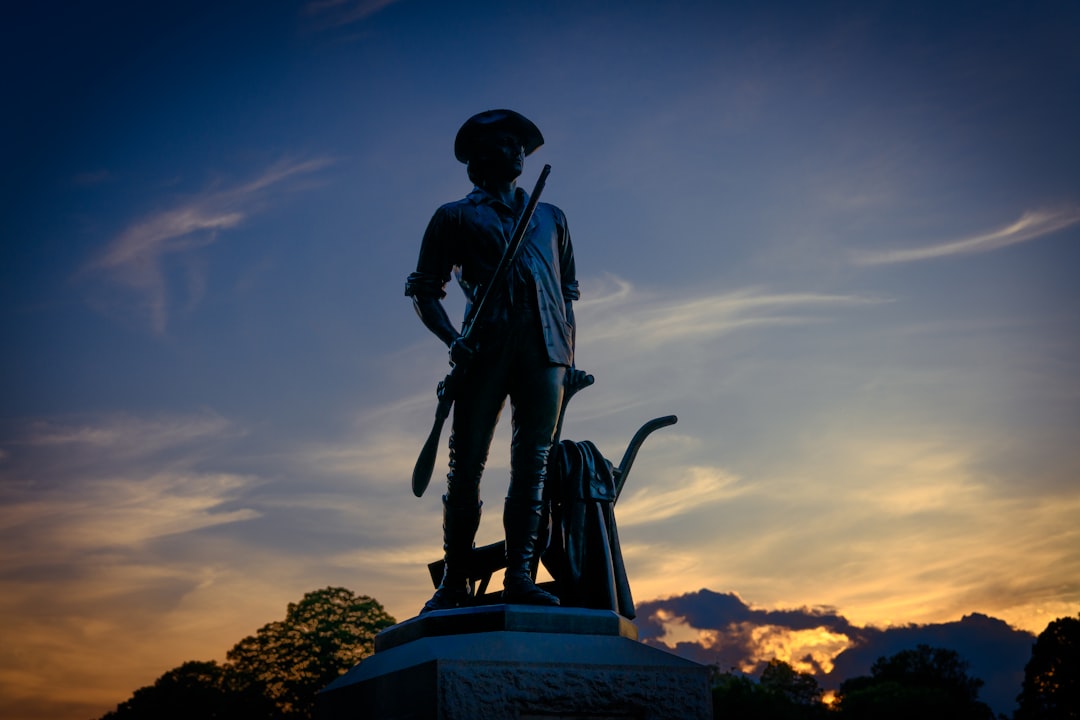“The third-rate mind is only happy when it is thinking with the majority. A second-rate mind is only happy when it is thinking with the minority. A first-rate mind is only happy when it is thinking.”
― A.A. Milne
I’m here to tell you that the rumors of America’s demise are greatly exaggerated. This is not to say that I am the Happy Warrior whistling past the graveyard wherein is hastily buried our liberty and freedoms. And I am also not going to indulge the impression that every passing day brings us within striking range of Death’s sickle.
No, this is the argument of an American Optimist in defiance of the Anti-American. The hard-nosed realist, the earnest sentimentalist, the weary patriot, and the heavy-hearted idealist whose tears mourn a forgone nostalgia quench the green shoots of hope just as thoroughly as the sweat of the determined warrior.

In the fervor of disassembling of the old notions of America’s political order, it was inevitable that certain sensibilities would be revived and rebranded as new — though most notably and perhaps notoriously by modern-day treasure hunters who stake their claims on the shifting winds of politics and culture. But to keep these winds blowing, they must whip the maelstrom of America’s passions and good faith — a force of nature capable of accomplishing no less than ridding the earth of the most evil regimes in history.
In his enduring relevance, the writer and journalist Tom Wolfe so keenly observed, “Any movement, group, party, program, philosophy or theory that goes under a name with 'new' in it is just begging for trouble, of course.”
What springs from the churned political soil is a parade of the new movements on the Right and old grievances on the Left reinvigorated by the battle over America’s proper and honest biography. Frankly, I’m growing tired of the assumption of America’s weakness, of our inability to maintain a moral compass in a broken world, of the morbid obsession with condemning our future — for the Left because of our past, and the Right because of our present tottering.
Because I live in a world upended under the guise of subjective tolerance and selective compassion my hope must lie in American exceptionalism. And if I believe in America as an extension of its citizens — namely the families and communities that recognize and exercise their God-given rights and inherent will of self-determination — then I can only be heartened by an America that imperfectly and laboriously endeavors towards an ideal — a sentiment — of objective virtue and goodness.
So, I have no patience for my fellow Americans who are foaming at the mouth like Pavlov’s Dog at any mention of a “national divorce,” suicide, or implosion. These are bumper-sticker slogans that accompany a seething self-awareness of one’s feeble-mindedness and lack of independent thought. This is a mindset of weak-willed people who project that belief onto America. They act within a sphere of heightened cynicism and disdain towards a country that is strong enough to overcome the naivete of its youth, avoid the temptation of empire borne of its natural riches, defeat the cause of its original sin and overcome a near-fatal civil war. Yet we are led to believe our republic is as fragile as the egos of those who keep insisting it.
Liz Cheney and Adam Kinzinger whose outsized sense of self-importance can fit neatly into the lens of an MSNBC television camera think the riot on January 6 was indicative of America’s fragile state rather than proof of its enduring strength. I have yet to see evidence that President Biden believes America was ever anything but weak and irredeemable. In his 2021 Inaugural address, he states, “Our history has been a constant struggle between the American ideal that we are all created equal and the harsh, ugly reality that racism, nativism, fear, and demonization have long torn us apart. The battle is perennial. Victory is never assured.” He goes on to speak loftily about unity, yet it is unity under a forced politically partisan dogma. It is the unity of unquestioned consensus and the unity under threat of political persecution.

Weak people who have lost faith in America are trying to convince us we are headed for an inevitable decline. The Left perpetuates victimhood to separate neighbors. Factions of the “New” Right wallow in grievances just as they point to European strongmen as models to combat…grievances. National Review editor Jack Butler has effectively argued against a popular idea that to combat this inevitable decline — this decadence — America needs its own strongman, an American Caesar, to restore its strength. He writes
The allure of a Caesar who will “cross the Rubicon” on our behalf depends on two false ideas: first, that he could provide more freedom than a “late-stage” political order, and second, that we are in such a political order. To embrace the first is to gamble against human nature and the record of history. The American Founders were quite conscious of the challenges they would face, but even they accepted that “enlightened statesmen would not always be at the helm.” Our system prefers them but can function without their constant presence, having distributed power vertically, between different levels of sovereignty, and horizontally, between the parts of government at each level. Caesarism, on the other hand, would depend on an indefinite succession of enlightened statesmen. It would exchange checks and balances and gridlock for the hope that the “right” person would somehow maintain power and wield it absolutely yet nobly. History is littered with the wreckage of such vain hopes.
This is a nod to our Founders and should be an outright dismissal of an argument that places such little faith in American capacity for self-determination. We should be skeptical of people who place so little trust in us. Anyone on the Right who believes, first, that America is so weak as to be dipping its toes irretrievably into the morass, and second, that the only way to avoid such an inevitability is to install a conservative-minded authoritarian (whatever that means), is simply…un-American, not to mention not conservative.
It's a sign of American vigor that we can withstand such violent social, economic, and political lurching yet still have the will to “speak truth to power,” to borrow a phrase that is now an ill-fit to the generation that originated it. We can see with clear eyes what happens to people adopting an entrenched and unchallenged ideology and blindly following the dogma of single-mindedness. We had a front-row seat to it during the COVID scaremongering-turned-virtue signaling of the last two years and are still in the tyranny of tolerance now: it’s the mushy-minded unthinking and incurious who meander about aimlessly but for their Pied Piper “experts” and public policy bureaucrats who swiftly led them towards the cliff of paranoia, isolation, and fear; to paraphrase Kotschnig, people who have minds so open their brains fall out.
In a May 15, 2020 podcast episode, The Spectator Editor-at-Large Ben Domenech and Father Robert Sirico, President of the Acton Institute, discussed the importance of disagreement to the cultivation of stronger ideas [approximately the 41 minute mark]
Ben Domenech: I feel like this is a point in which I see more vibrant debate between conservatives and libertarians, between populists and between free traders and the like than I think I've really seen in a very long time. I feel like it's a very vibrant time for this kind of debate, and that there are interesting people in all these different factions…
Father Sirico: …I like the way you put it. I think there is new, there are new things coming up. I don't think they've fully matured and unfolded yet, but yes, if reflect on this, again, from history and from as a Catholic priest, the greatest points in the Church's history — intellectually, doctrinally, have come when the greatest Heresies presented themselves. That when a question is brought to the fore, it forces the institution to define itself more clearly. Chesterton said, ‘Heresy is truth gone mad.’ So now we go back and see, well, what do we mean by this truth? What are its implications? How do we fill out the definition of this thing? And I hope that's what will happen in the years to come.
That picture of American defiance in the face of decadence will be a choice, not an inevitability. America’s enduring faith in self-determination, patriotism, benevolence, and will is not a weakness, nor a false or unattainable goal. It has long been criticized and is worthy of a passionate defense. Even in the pages of the April 1918 issue of The Atlantic wherein the literary critic and editor Henry Seidel Canby wrote in “Sentimental America”
And this idealism … has been in the air of America. It has permeated our religious sects, and created several of them. It has given tone to our thinking, and even more to our feeling. I do not say that it has always, or even usually, determined our actions, although the Civil War is proof of its power. Again and again it has gone aground roughly when the ideal met a condition of living — a fact that will provide the explanation for which I seek. But optimism, ‘boosting,’ muck-raking (not all of its manifestations are pretty), social service, religious, municipal, democratic reform, indeed the ‘uplift’ generally, is evidence of the vigor, the bumptiousness of the inherited American tendency to pursue the ideal. No one can doubt that in this generation we believe, at least, in idealism.
And the late Midge Decter with the full breadth of insight, candor, and determination against a rising anti-American tide in 1968 wrote in that year’s April issue of Harper’s Magazine
In this sense, perhaps, the disaffection that goes so far as to wish a defeat upon one's own country is well deserved by the arrogance that dares pursue its own privately defined terms of victory. In any case, the radical, despairing nihilism that has ballooned among us in the past few years shares a number of spiritual and intellectual characteristics with the present atmosphere in the White House. Notable among these are an unthinking dependence on political formulas expressed in moral terms, a refusal to make certain necessary distinctions, a lack of candor, a shutting off of genuine debate, and an almost personal demand for loyalty, for the closing of ranks.
We see the world in varying degrees of chaos with America at the center. But we must remember America is at the center because it alone can bear the weight of the world’s problems, bending perhaps, but not breaking. We should be heartened that history is not inevitable; that our doom is not foretold. We still have the spirit to challenge our fears and overcome our despair; we will not settle into a malaise of apathy. America isn’t weak because of our imperfections; it is strong because we seek to overcome them.
“Because of what America is and what America has done, a firmer courage, a higher hope, inspires the heart of all humanity.”
— Calvin Coolidge, Inaugural address, March 4, 1925




America, although mush maligned these days, is still being supported by some epic folks. I agree 100%. America, while being systematically destroyed, will come to discover the reasons why it exists in the first place. Those who seek to destroy us are strong but driven by such spectacular evil they will fail.
Substack itself is a key piece of evidence in support of the argument made here. Bravo!!!